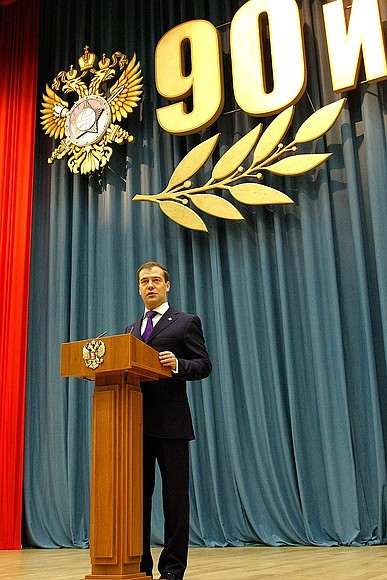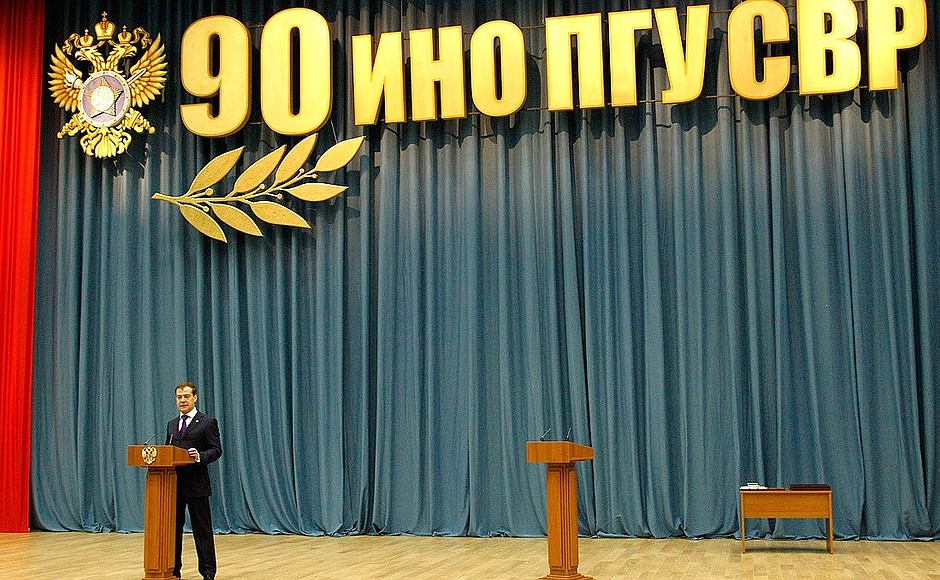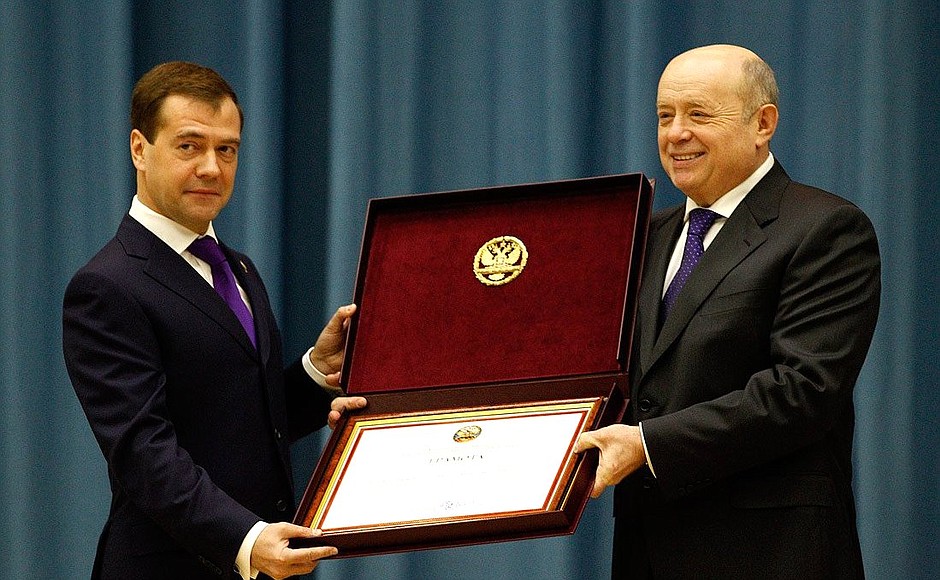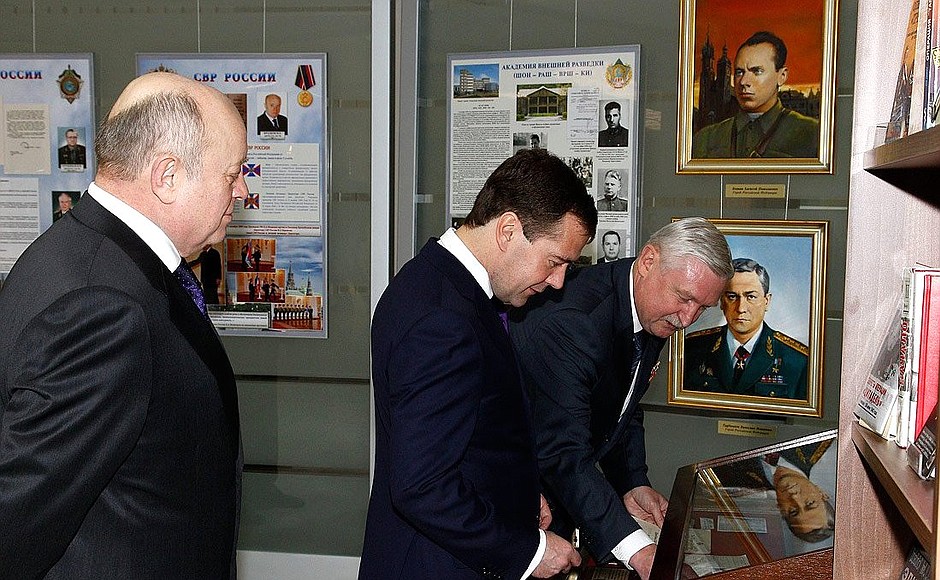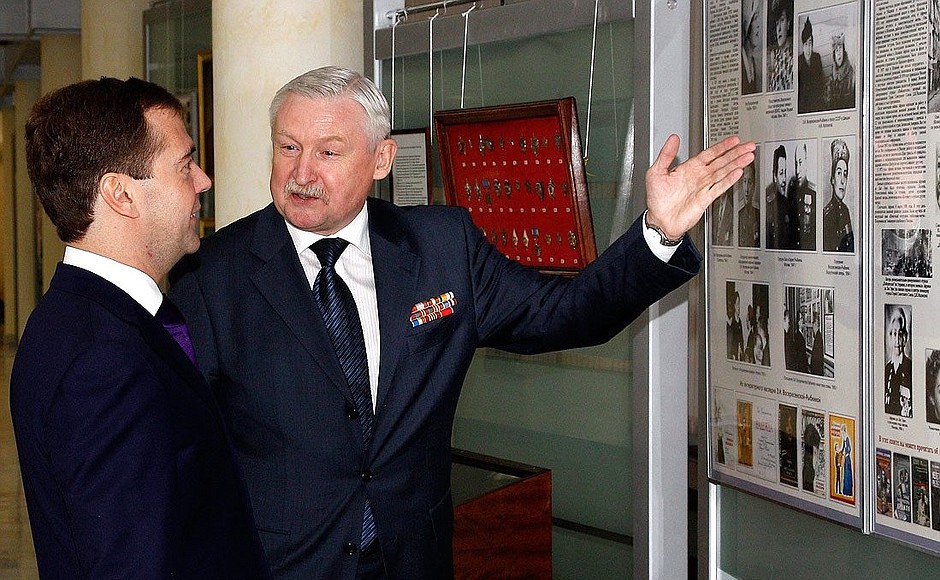* * *
President of Russia Dmitry Medvedev: Friends, I want to congratulate all of you on the Foreign Intelligence Service’s 90th anniversary.
The film that we just watched began with the words “And so it will remain as long as our Motherland needs a foreign intelligence service,” and ended with the assertion that this will always be the case. I think this assertion is absolutely correct.
If we look at the world without illusions about humanity’s development, it is clear that the intelligence service will always be an important state institution no matter what the situation, political regime, or leadership in place. The intelligence service’s missions remain essentially unchanged. Methods and people change, directors come and go, but the tasks and missions remain. This is cause for neither sadness nor surprise, but is simply the way our world is.
Our foreign intelligence service, if we take its development from the start of the Soviet period, has gone through many stages in its evolution and is today one of the strongest and most competitive in the world. I think this is something that not only we here in this hall or our country’s people know, but something that our partners and our potential competitors also realise.
The service’s task now is to preserve these qualities in the face of the huge number of global challenges before us today. We all know these challenges. They include international terrorism, drug trafficking, global competition on international markets, cybercrime, and a mass of new threats not yet so clearly defined. Although the intelligence service’s missions remain essentially the same as in the past, and I think this will be the case for a long time yet to come, its methods must continually improve and change.
The global information flow that has spread across our entire planet has substantially changed the way decisions are made and created new problems. Some of these problems have been evident over recent months. Is this a good or a bad thing? In some ways it is good, for the intelligence service at least. It creates new analytical opportunities and the possibility of seeing how potential competitors view us. But at the same time, it also creates new difficulties. No one is guaranteed against these problems, and this is something you also need to take into account in your work.
This year is a big anniversary for the Foreign Intelligence Service, but it has not been an easy year. I think, however, that our service still has all the possibilities it needs for timely, professional, and most importantly, effective resolution of the tasks before it.
The tasks and duties of the state authorities, President and Government are to ensure decent living standards for those working in our foreign intelligence. This is a vital aspect for the service’s effective work, because no matter how exceptional its personnel often are in many ways, they are nonetheless ordinary people with ordinary needs such as home, their immediate environment, housing conditions, and wages. There is no getting away from these issues. Conviction and heroism will always play a part of course, but other basic motives must be satisfied too.
One other thing I wanted to say today is that the state must take a responsible attitude towards any of our citizens who end up in various, often complicated situations, and this applies fully to those who work for our Foreign Intelligence Service too. You can rest assured of this.
Friends, it is a real pleasure to be here today and congratulate you, although these kinds of congratulations are never particularly public in nature. But I want to express at least part of my congratulations with the media present. I want to inform everyone here that as Commander in Chief I have signed an Honorary Certificate that I present to the Foreign Intelligence Service for its work in defence of our country. I offer you my warmest congratulations on this.
I want to say too that I will present state decorations to a number of the service’s officers.
